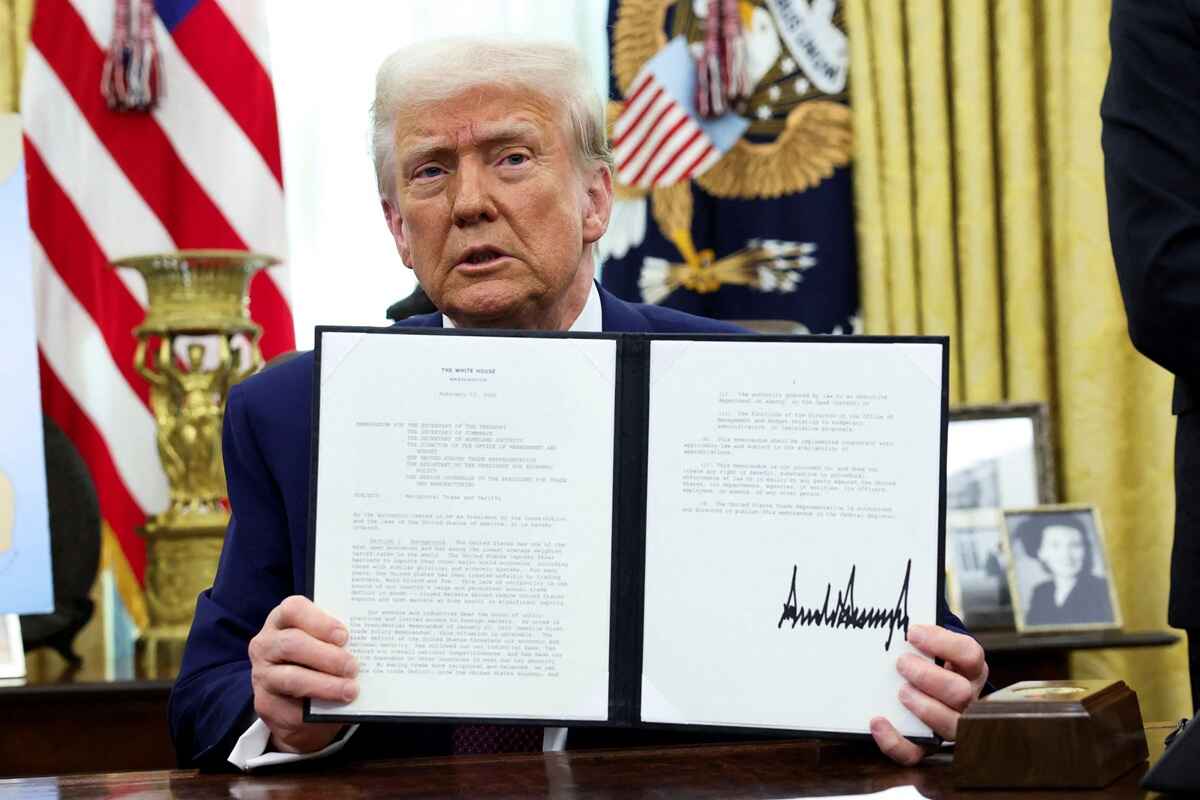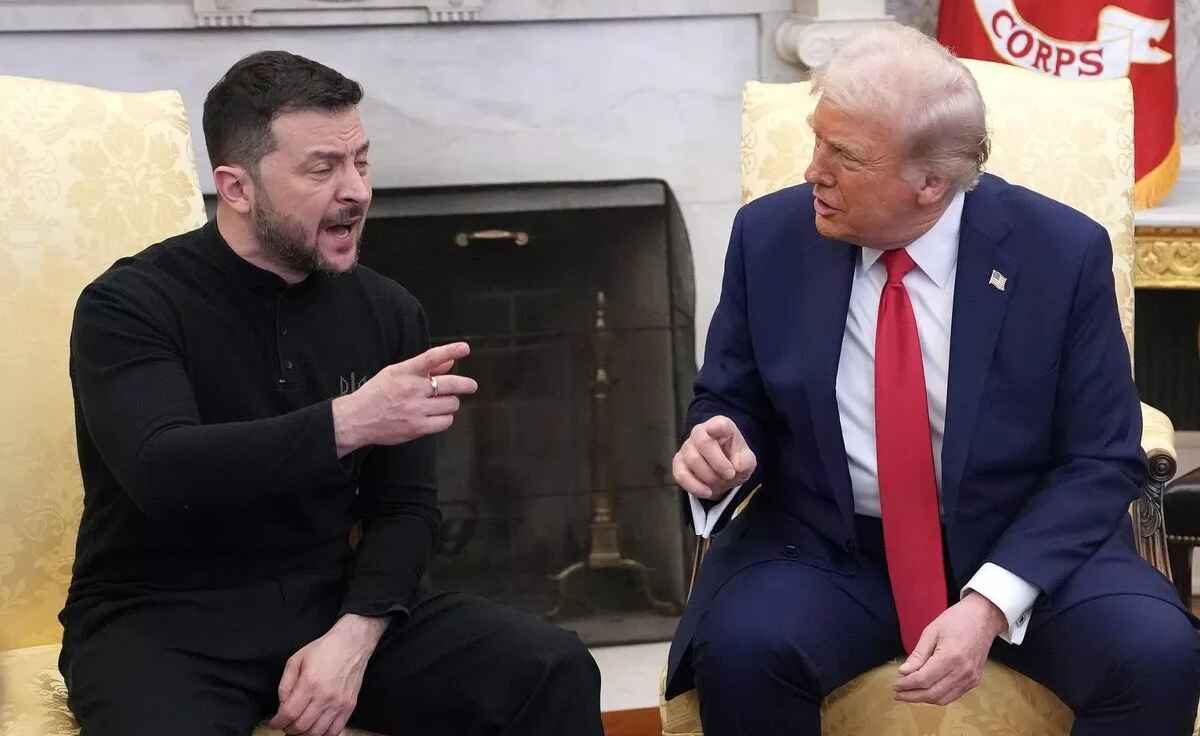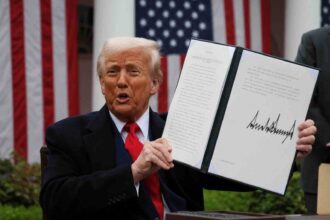President Donald Trump announced on Sunday that the upcoming reciprocal tariffs will apply to all nations, rather than being limited to 10 to 15 countries with the largest trade imbalances.
Trump’s new tariff plan, set to be revealed on Wednesday and branded as “Liberation Day,” builds on previous measures imposed on aluminum, steel, and automobiles.
Additionally, the administration has already increased tariffs on all Chinese imports as part of its ongoing trade dispute with Beijing.
“You’d start with all countries,” Trump told reporters aboard Air Force One, according to NBC News, emphasizing that the policy will have a broad global reach. His statement contradicts earlier comments from White House economic adviser Kevin Hassett, who had suggested the focus would be on a select group of nations with significant trade imbalances.
The expansion of tariff measures has sparked concerns among economic analysts and investors. Markets are increasingly wary of the potential for a prolonged trade war, which could lead to supply chain disruptions and increased costs for businesses and consumers. Economists fear that aggressive tariff policies could push the U.S. economy toward a recession if retaliatory measures from other countries escalate.
Despite these concerns, Trump remains firm in his stance, arguing that tariffs protect the U.S. economy from unfair global competition. He sees them as a key tool to negotiate better trade terms and reduce the trade deficit.
Trump has vowed that the U.S. will impose reciprocal tariffs on nations that levy high fees on American exports. His goal is to match those duties to create what he describes as a fairer trading environment.
In February, Trump signed a memorandum directing U.S. trade officials to conduct a country-by-country review to identify unfair trade practices. The administration was tasked with formulating tailored countermeasures for each nation imposing unbalanced tariffs on American goods.
While Trump has indicated that his tariffs will be broad-reaching, he has also hinted at the possibility of adjustments. Last week, he suggested that in some cases, tariffs might be imposed at rates lower than those charged by foreign governments.
The S&P 500 share index in the US has fallen by 10% since mid-February, with a 0.3% drop in mid-day trade. Early on Monday, Japan’s Nikkei 225 index closed 4% lower, while South Korea’s Kospi fell 3% according to BBC’s report. The UK’s FTSE 100 index fell 0.9%, while Germany’s Dax index closed 1.3% and France’s Cac 40 fell 1.6%. Gold reached a record high of $3,128.06 an ounce.
Don’t miss out; for more updates like this, check out our General News hub.








